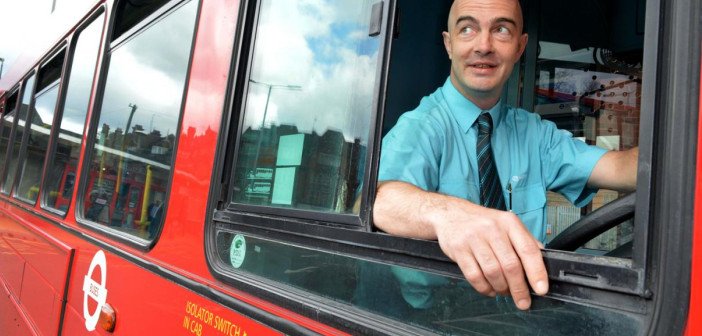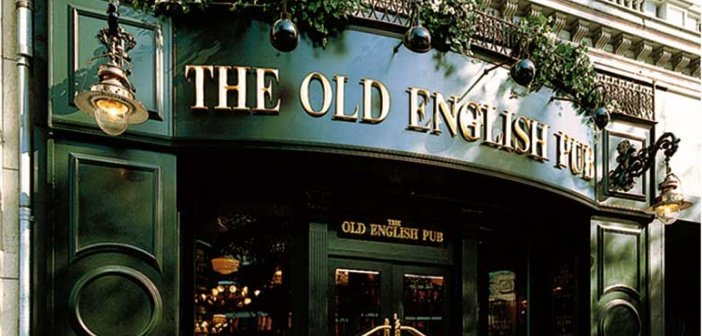“Ah you’re Irish mate, you’re all white” | Privilege in Brexit Britain
“Northern Ireland?” The cashier in Gregg’s takes my ten pound note suspiciously, scrutinising it first before turning her attention to me. “I don’t know if I can take this,” she says. “I’ll have to check.”
I’ve attempted to pay for steak and cheese pie with a note issued by a Northern Irish bank, which I picked up while on a visit to Belfast from the Republic earlier in the year. “Do we accept Northern Irish money?” she asks a man with dreadlocks tucked into a Gregg’s branded hat. She doesn’t ask “Is this real money?” but rather “Do we accept it?” As in, does Gregg’s recognise the Northern Irish state, or is a 32 county Irish Republic more in keeping with their brand identity?[pullquote] English people eat pies for lunch, not rolls. Sometimes I think I’ll never adapt to life here.[/pullquote]
The dreadlocked man gives a disinterested nod – a gesture I’m becoming more and more familiar with in London – and I am allowed pay for my pastry and take a seat at a dirty table, watching as a few dozen tense office workers queue for their lunch, snaking out onto the high street. English people eat pies for lunch, not rolls. Sometimes I think I’ll never adapt to life here.
I’ve been getting the bus to and from work for about a week now and I’m still saying “Thank you!” to the bus driver as I disembark the carriage, despite bafflement from the other passengers and indifference from the drivers themselves. It’s a nicety I’ve taken with me from Dublin that I am determined to hold onto for as long as possible, more as an act of defiance than anything else. While the driver typically ignores the gesture, I’ve noticed that the other passengers seem genuinely unsettled by it, as though saying the words “thank you” on a bus is the equivalent of yelling “Allah Akbar!” on a Tube.
I fantasise that, someday, I’ll thank a London bus driver for a job well done and he’ll disengage from his blank stare to make eye contact with me, perhaps even breaking out a smile. I’ll be so overcome with emotion that a single tear will roll down my face as I press my bare chest against his glass partition.

“The problem with this country is the immigrants.” I’ve made the mistake of striking up a conversation with another man sitting at a bar, in one of the many pubs in this country named after some King or Earl or other. He’s a working class man in his mid 40s drinking a pint of Ale, which is a kind of foul-tasting poison which I understand English people are forced to drink as a punishment for their role in the Atlantic slave trade. “That’s why I voted for Brexit.”
“You realise,” I say finally after a moment’s silence, “… That I’m from another country?” He considers this, then says “Ah, you’re Irish mate. You’re alright.” It doesn’t take much scrutiny to read between the lines of this statement. What he’s really saying is “Ah, you’re Irish mate. You’re all white.”
Though Ireland stand to lose significantly economically when Brexit takes place, it’s more than likely that Irish migrants in Britain will retain our “non foreign” status, as enshrined in the Ireland Act of 1949. Indeed, it seems that to many Britons, Irish independence is little more than a quirk in our nation’s character; an eccentricity they are happy to play along with.

While immigrants from the East are accused by the some of ‘taking’ jobs, an opinion seemingly exists that the idea that an Irish person would be selected for a job over a British person is ridiculous. There’s a limited number of roles Irish people are suitable for anyway; like singing songs in pubs or being delightful on television chat shows.
And so it seems a hard Brexit is unlikely to affect Irish people in the direct, visceral way is could impact many other immigrants to Britain. It’s a position of privilege we perhaps do not fully appreciate, but as the shadow of hard borders looms, and the questions Greggs cashiers ask their managers become ever more aggressive (“Do we accept Northern Irish money? Are we allowed serve pies to Romanians?”), living and working in Britain may become an option we become less comfortable with.
